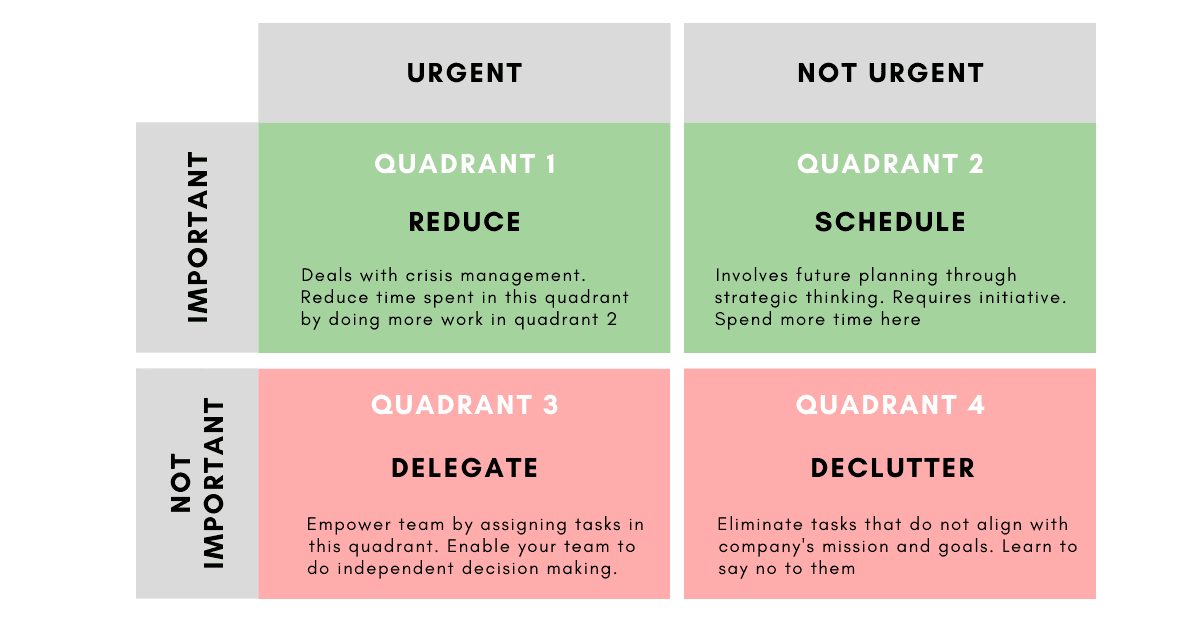Delegation may be one of the most challenging issues that leaders face as they continue to grow their careers. Delegation often raises a conundrum called The Leadership Paradox, which asks, “How can you become more essential to your organization while being involved less?” Leaders struggle with this idea, as their careers are often defined by hard work and a willingness to lean in to resolve the most challenging issues. Yet, overcoming the struggle with delegation and The Leadership Paradox, separates highly effective leaders from individual contributors with leadership titles.
When it comes to being an effective leader and using delegation well it comes down to a straightforward statement: Leaders need to be leading, not doing. Once leaders are able to wrap their minds around this statement and accept it, they can confront the critical question, “Am I truly able to delegate?”
Consider your current position, responsibilities, and team, and seek your true answer. Are you truly able to delegate? Are you able to put trust in your judgement and your team? You know whether your team is informed and trained well enough to take work off your plate so you can focus on your high-value critical responsibilities and be an effective leader.
After all, delegation is critical to not only your success but the success of your team. Beyond allowing you to focus on high-value strategic thinking, it increases your employees’ skills, encourages their ownership and engagement at work, brings to light the best and worst of your employees, and builds trust between you and your team.
Delegation Without Hesitation
Human resources development consultancy H2H recently learned 35% of managers struggle with delegating assignments and feel unable to give up control. When asked to explain why, 35% said they didn’t feel they had the necessary resources and 29% claimed it didn’t feel fair to ask someone else to do their work.
Leaders that avoid delegating tasks often use phrases like, “It would take longer for me to explain the work than just to do it myself.” Or, they lack trust in their team and have concerns the work will be subpar and filled with mistakes if they do not handle it themselves.
So, what steps can an effective leader take to improve their delegation skills and help ensure successful outcomes when delegating?
The 6 Steps to Delegating the Right Way
- Assess a new project or task with a delegation first mentality. Consider if the proposed project/task and you would be best served by leading your team’s work or giving it your personal attention.
- Once you determine delegation is the correct path, it’s important to choose the right person for the role. Your team is a group of specialists whose individual skills best meet different types of challenges. Pick the right person and confirm they have the bandwidth to handle the assignment.
- Ensure you provide the assigned employee(s) the information needed to succeed. Sometimes leaders can receive off-target or subpar work from their employees because of a failure to communicate some critical piece of project information or expectation. When giving out an assignment, be sure to provide this information:
- The goal and desired outcome
- Why the assignment is crucial to the client, organization, or team
- A basic outline of the work to be done
- Expectations of due dates, time to be spent, and boundaries of work to be provided
- Empower and trust the employee to decide how to accomplish the task
- Be available. Provide regular opportunities for support, help, and guidance so they can complete the assignment
- Assess the completed work and provide feedback. Explain how the assignment was and was not successful and provide actions the employee can take for future improvement. Your insight will help them learn and require less oversight in the future.
- Express Gratitude. Everyone likes to know what they provide is appreciated by the recipient. According to Bloom Leadership, 79% of employees leave a job because they feel a “lack of appreciation.”
Most of the steps are straightforward and serve as good, general advice to being an effective and influential leader. But, it can be difficult when assessing a new project or task, what should and should not be delegated.
Discerning Which Tasks to Delegate
Here are some fundamental concerns about what tasks make sense to delegate and which are worth spending time to do yourself.
Delegate
Routine Tasks: Scheduling meetings, booking flights, copying and pasting information from multiple spreadsheets into one doc — these are all simple assignments that take up your valuable time and are better served by having someone else handle them.
Tasks Someone Else Can Do Better: Effective leaders understand they are not the best at all, or even most, tasks that come across their desks. The point of building a team of experts around you is to leverage their expertise. Letting your team member’s skills shine shows you value their contributions and expertise, while allowing the rest of the team to focus on the areas where they perform best.
Tasks That Develop Employees: It can be tempting to complete a task that will take you half the time and energy to complete as someone else on your team. But, doing so can rob your team of important moments for professional growth. They will never be able to handle the task, unless you give them the opportunity to practice and prove they can.
Tasks Someone Enjoys: A delegated task can be just as much a reward as an assignment. Everyone has specific tasks or areas of their job they enjoy more highly. Consider the types of work your teammates enjoy most when assessing which person should handle a new assignment.
Tasks Not to Delegate
Inappropriate Requests: Unless you have a personal assistant, keep the tasks for delegation strictly professional and in the spirit of the delegate’s position. Not doing so can be considered an abuse of power. Avoid personal requests like receiving a personal package in your stead.
In addition to personal tasks, avoid assigning tasks outside a delegate’s work role. Delegating work served by a different department or another team member’s specific role must be given and communicated with well-thought-out reasoning.
Crises: Crisis management and crisis recovery are times when you and your team receive the highest scrutiny and every step you take can come with big stakes. These are the times when you need to lead from the front and give these situations your utmost attention, not delegate.
HR and Confidential Matters: Sensitive subject matter is best addressed by you directly. These issues are often delicate in nature and confidential for a reason. The subject matter is not intended for everyone. Consider these assignments for your eyes only.
Giving Feedback: As a leader, providing feedback is a cornerstone of your responsibilities. While it may be helpful to bring in one or more people affected by the work or actions of an employee to highlight what worked well or where changes are needed, you hold the ownership for providing feedback to your team.
Strategy and Planning: These are the high-value assignments you are delegating tasks and project to address. The solution to The Leadership Paradox is to spend your time and effort on the highest-value work you can. Most often that is strategy and planning. You should not be delegating strategy and planning without a very good reason.
Review Your Delegations
Once you start assigning tasks to others, it’s important to to take a continual inventory of how well the projects are completed. Be honest and critical with your success and shortcomings by reviewing these questions:
- Do I have confidence and trust in those I delegate?
- Have I properly empowered them to complete the tasks?
- Have I been too hands-on or hands-off?
- Am I failing to provide enough support?
- Am I effectively leveraging the experts on my team or am I only delegating the most basic tasks?
Try the Eisenhower Matrix
Keeping in mind all the criteria for how to prioritize and delegate the tasks that come across you desk can be difficult. Thankfully, a great leader of yesterday can help us out.
As his life in public service took him from soldier to U.S. Army General, then from Supreme Allied Commander of NATO to President of the United States, President Dwight Eisenhower developed a method that helped prioritize and deal with the many high-stakes issues he faced daily.
He accomplished this by reviewing issues according to two criteria: Importance and Urgency. It is a great way to categorize you and your team’s to-dos.

Urgent & Important: Tasks that end up in this box are challenges that need your immediate attention and you should handle yourself. They are important to furthering your organization and have a critical time component. These tasks often need to jump the queue on you and your team’s priorities. Crises would fall into this box.
Urgent & Unimportant: These are tasks that have a time component but are low-value work. Unimportant tasks are not absolutely unnecessary, but they rarely serve forwarding the high-level initiatives and objectives of your organization. These are the perfect tasks for delegating to team members so you can focus on the high-value tasks that fall into the Important boxes.
Not Urgent & Important: These are the high-value strategy and planning tasks that can so easily get put on the back burner if you are not delegating properly. While Urgent & Important needs will always take precedence, these are the tasks you can complete to really showcase your value to your organization.
Not Urgent & Not-Important: Tasks that end up in this quadrant are ones you should be wary of accepting. They can end up being time-wasting busy work that distracts you and your team from focusing on important tasks. When you identify these tasks say no to them.
When to Say Yes
When an assignment comes up that seems perfect for delegation there may be a reason to say yes to taking it on yourself. If you are the best expert for handling the task, and cannot afford the bandwidth or time to use the task as an improvement opportunity for a delegate, say yes to the task. And sometimes, you need a break from the high-value work to roll up your sleeves to do a little more doing. Taking the odd task on yourself is also a good way to keep your skills sharp.
Delegation, Moving from Doing to Leading.
Leaders often achieve their station after years of proving themselves through hard work. Now, they have to change that behavior to continue being successful by finding others to handle those assignments with their guidance. It’s a shift in mentality and measuring success that takes some time to learn. But the rewards of mastering proper delegation will benefit everyone on your team and your organization.
EWF International – Driven to Help Women Lead Better
Since 1998, we’ve focused on consulting and supporting women in business. EWF International offers programs to help career women like you build your strength and power your success. Our Emerging Leaders program helps early- to mid-career women gain the leadership insight and battle-proven strategies needed to advance their careers. Participants gain the tools to deliver better results for their companies through an intensive curriculum of lectures, discussions, assessments, and workshops so they exit the program ready to supercharge their careers.
Learn More About EWF International’s Emerging Leaders Program




